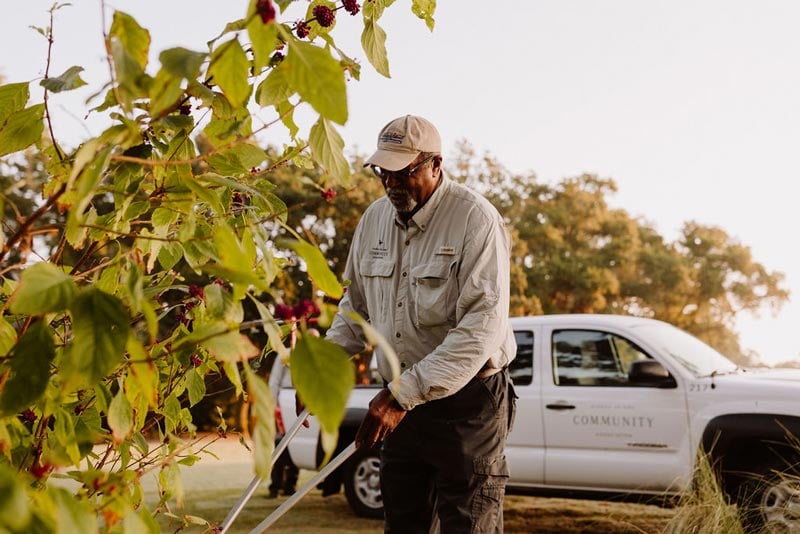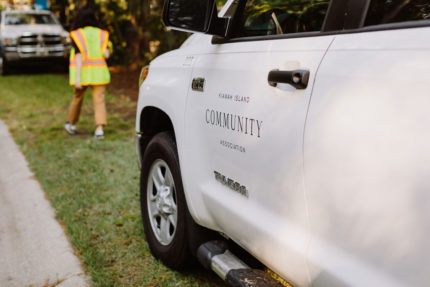Jul
12
2009
From The Blog
Emergency Services On Kiawah: Part 1 The St. John’s Fire District
In a recent issue, Digest reported on the March 27 symposium on emergency services on Kiawah (A Team Approach to Medical Emergencies, May, 2009). As a follow-up to that program, Digest met with Karl Ristow, fire chief of St. John’s Fire District (SJFD), to discuss what Kiawah homeowners should be doing to facilitate service from the fire district. Next month, Digest will interview Don Lundy, director of Charleston County Emergency Medical Services (EMS), another panelist at the March program.
Chief Ristow has been head of SJFD for more than 10 years, “the longest I’ve stayed in any one place,” he claims. He has worked in the firefighting domain for nearly 30 years, first as a firefighter in the Air Force and later with a teaching stint at the South Carolina Fire Academy, before completing his education and taking the SJFD position. A native of Wisconsin, Chief Ristow was pleased to find work in South Carolina when he left the military. “The weather is a little better than in Wisconsin,” he chuckles.
The conversation with Chief Ristow centered on educating association members about emergency services and about three primary areas of concern to SJFD: impediments to prompt and effective response by the fire department to emergencies, the misuse of 911 and false alarms.
Impediments to Fire Trucks
The fire department inspects houses when they are built to ensure accessibility in case of fire. After homeowners take occupancy, however, maintaining satisfactory access for fire trucks is the owner’s responsibility. Chief Ristow urges homeowners to be sure that trucks and ladders have easy access to their homes.
Long driveways fringed by trees pose a potential problem for fire trucks. Trucks need a 16-foot clearance above the driveway. Chief Ristow cautions, “Imagine getting a 40-foot truck down some of those driveways. There are 8,000-square-foot homes that would need two or three trucks in a fire, and I would have difficulty getting them in there because of the size of the driveways and the low overhanging branches.”
He is also concerned about homes with shrubbery and trees that block ladder access to the house. “These are 38-foot-high houses in many cases, and if we can’t get the tower or a ladder up against the house, it slows us down.” Before his tenure, Kiawah lost two houses to fire, and poor accessibility was a contributing factor. Chief Ristow stresses the need for appropriate use of 911. Frivolous
911 calls pose a hazard because they can delay service in true emergencies. Chief Ristow tells the story of a woman in California who called 911 to complain about inadequate service at McDonald’s.
The 911 operator disconnected the call and the woman called back. This time police responded; she was arrested. While SJFD has never had a call like that, they do get 911 calls for non-urgent reasons, such a request for information about a hurricane, or to report a cat in a tree.
On the other hand, some calls that should go directly to 911 do not. At one time, Kiawah homeowners were given a card with the fire station phone number, but sometimes people with an emergency called the fire department and the phone went unanswered because no one was present. Valuable time was lost even if the caller then called 911, but some might wait to try again in a few minutes or would next try the security gate. About once a month, a call directly to the fire department, rather than to 911, needs to be rerouted to EMS, and valuable time is lost—although this situation has recently improved because of efforts to educate the public. SJFD sends a fire truck in response to every call, and “Every caller is a taxpayer and deserves a response,” Chief Ristow explains. “If we have multiple alarms, a caller might not get an ambulance for a while, but all our personnel are certified ‘first responders,’ so they can administer CPR or use an automatic external defibrillator if necessary. Patients tend to be relieved even if another official vehicle responds before an ambulance. Someone having a heart attack might feel calmer just seeing those red or blue flashing lights and knowing that help has come.
False Alarms
False alarms are the primary cause of delay in providing service, comprising 43% of the calls from Kiawah. Nearly all of these alarms originate from home security systems or from individuals’ medical alarms. SJFD responds to every alarm, sending as many as 15-16 people. If another call comes in, resources might be insufficient, causing only one fire truck to be available for a situation that requires more. Chief Ristow recounts one day when five calls led to an unacceptable response time of 30-40 minutes.
Burglar and fire alarm monitoring companies exacerbate the problem. Because the sound of a siren alerts perpetrators to leave, security companies are just as happy to have the fire department respond to an alarm as to have the police. Chief Ristow is concerned that “firefighters and medics are rolling into a potential burglary situation without the means to defend themselves.”
Some cities have false alarm ordinances under which a homeowner can be fined for multiple false alarms, but Charleston does not. At Chief Ristow’s request, the Town of Kiawah Island now sends a cautionary letter to homeowners who have had more than one false alarm, and the problem has diminished somewhat. In 2008, SJFD responded to 317 false alarms out of 1,535 total calls across its four-island area. That was a decrease of 22% over the previous year, which he attributes at least partly to the letters—although the other three islands do not send letters.
Continuing Education
Chief Ristow is appreciative of the efforts in recent years by Kiawah’s town and community association to educate the public about emergency services. He stresses the importance of ongoing education, noting that when educational efforts make an impact, but then are discontinued, issues soon reappear. For more information on emergency medical services on Kiawah Island, please visit www.kica.us/ems.htm.

